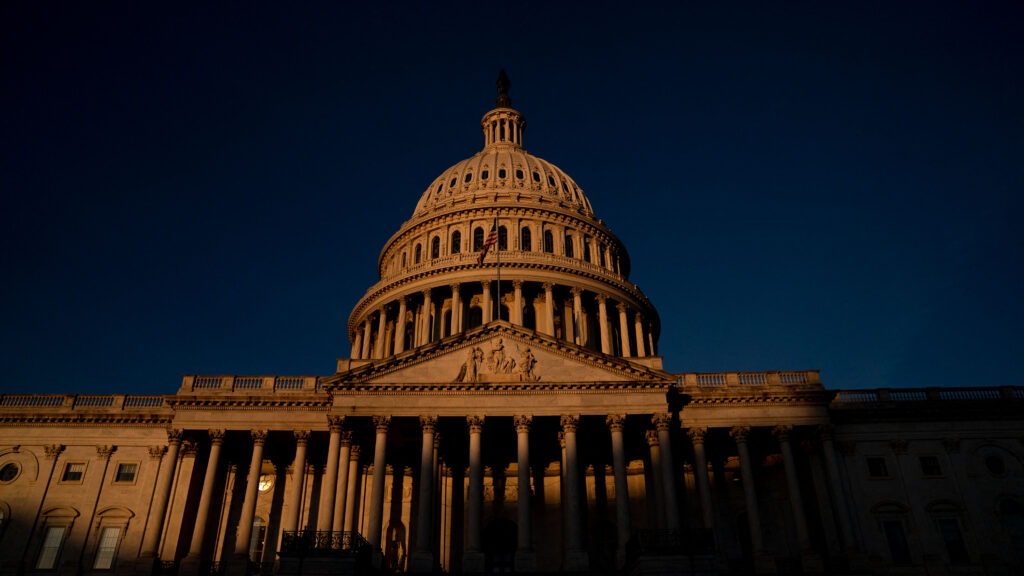You’re reading the web edition of D.C. Diagnosis, STAT’s twice-weekly newsletter about the politics and policy of health and medicine. Sign up here to receive it in your inbox on Tuesdays and Thursdays.
Bertagnolli’s burgeoning NIH agenda
Monica Bertagnolli is just two months into directing the $48 billion NIH, but she has a laundry list of challenges ahead of her. The agency is staring down potential budget cuts, ongoing interrogations of its infectious disease work, and a balancing act with advocates pressing for price controls on federally-funded drugs.
advertisement
The veteran oncologist and former NCI director sat down with STAT in a far-ranging interview to discuss her priorities and those battles ahead. Bertagnolli said she welcomes the scrutiny of controversial infectious disease studies and questions about whether the agency has made any progress on long Covid, but also defended NIAID’s work amid ratcheting Republican demands for better oversight and even bans on gain-of-function research.
Tellingly, she also held back on a full-throated endorsement of Biden’s latest plan to rein in drug costs, which would invoke NIH to require reasonable prices drugs based on federally funded research and even license those drugs patents to competitors when pharmaceutical companies won’t play ball. Read her comments on drug pricing and more here.
Hill health talks are clear as mud
As Congress hurtles toward another government funding deadline, conversations between the House and Senate over a package to fund important health programs and other add-ons providers want haven’t reached a conclusion. Of course, if there’s another short-term stopgap like congressional leaders are pushing, negotiators will have a little more time.
advertisement
When asked whether the House and Senate are talking to each other about Medicare provider payment policies, House Ways & Means Committee Chair Jason Smith told STAT in the hallway, “We have been, yes, for weeks.”
Hospital lobbyists went into a bit of a panic last week that they might not be able to avert cuts to safety-net hospital funding (known as DSH cuts in jargon) — so much that the American Hospital Association even sent a strongly worded letter to congressional leaders. But it’s clearer, two lobbyists said, that averting those cuts is a priority for Senate Democrats, including Majority Leader Chuck Schumer, Rachel reports.
The fate of a Medicare payment boost for doctors is less clear, however, according to my colleague John Wilkerson. Congress temporarily hiked doctor pay during the pandemic, and that bonus ended Jan. 1. Doctor groups are lobbying to extend the pay increase, which they call the “doc fix.” (Yes, that again.) Stay tuned this week for more from all three of us.
Arnolds’ spending goes dark
Laura and John Arnold are working hard to overhaul health policy and health research in Washington and in states around the country. And, until now, they had distinguished themselves by displaying exceptional transparency into the money the not-for-profit arms of their organization doles out, by publishing a sortable, up-to-date list of the grants they’ve distributed.
That era is over. Arnold Ventures has removed the database from its website, my co-author Rachel reports. Spokesperson David Hebert said the organization is “making improvements to our website to ensure it’s working as a resource for grantees, prospective grantees, and other website visitors,” and said the change is permanent.
Hebert said the grant information will be available in Arnold Ventures’ not-for-profit tax filings, an industry standard practice that will mean the disclosures will be delayed by two years. The move isn’t entirely surprising, as five years ago the couple converted their venture into a for-profit LLC — a harbinger of the possibility that the standard of transparency may not last forever.
Update: Texas Medicaid makes first step in gene therapy case
Days after a sobering STAT report on an Afghan refugee family’s efforts to secure gene therapy for their infant’s rare genetic disease, the Texas Medicaid program partially reversed its decision and cleared Sufyan Pashai for a doctor’s assessment.
As Megan Molteni explains, Sufyan’s older brother Mohammad was diagnosed late last year with metachromatic leukodystrophy. There is no way to reverse the neurodegenerative damage once it occurs, but four-month-old Sufyan, who possesses the same genetic mutation, could be an ideal candidate for an experimental gene therapy that can stop its progression.
The decision means Texas Medicaid will cover Sufyan’s assessment by the only doctors in the country currently providing the treatment, which is expected to be approved by the FDA as early as March. It’s a small step, advocates say, but the battle to cover costs to administer the therapy is far from over. More from Megan.
Q&A: Is private equity the future for private practices?
Private equity gets a bad rap in health care. But some doctors see that kind of cash and consolidation as the only way for their practices to survive lower pay, regulatory puzzles and consolidated hospital systems. And now, they’re taking that message to Washington, Brittany Trang writes.
Paul Berggreen, a gastroenterologist at Arizona Digestive Health, sat down with Brittany to discuss his effort with other doctors to stand up the new American Independent Medical Practice Association, a new lobby advocating for private practices specifically.
Berggreen knows this lobby doesn’t represent every physicians’ experience, but says it’s an important voice for the nearly 8,000 private-practice doctors who have signed up as members so far. Read the whole interview about what AIMPA hopes to accomplish.
What we’re reading
- Opinion: Pumping milk at JPM was a nightmare. It’s part of a bigger problem in the industry, STAT
- Medical mistakes are more likely in women and minorities, KFF Health News/NBC
- New York’s new doula plan will cover services for anyone on Medicaid, STAT
- Marijuana reclassification proposed over lower public health risk Washington Post

